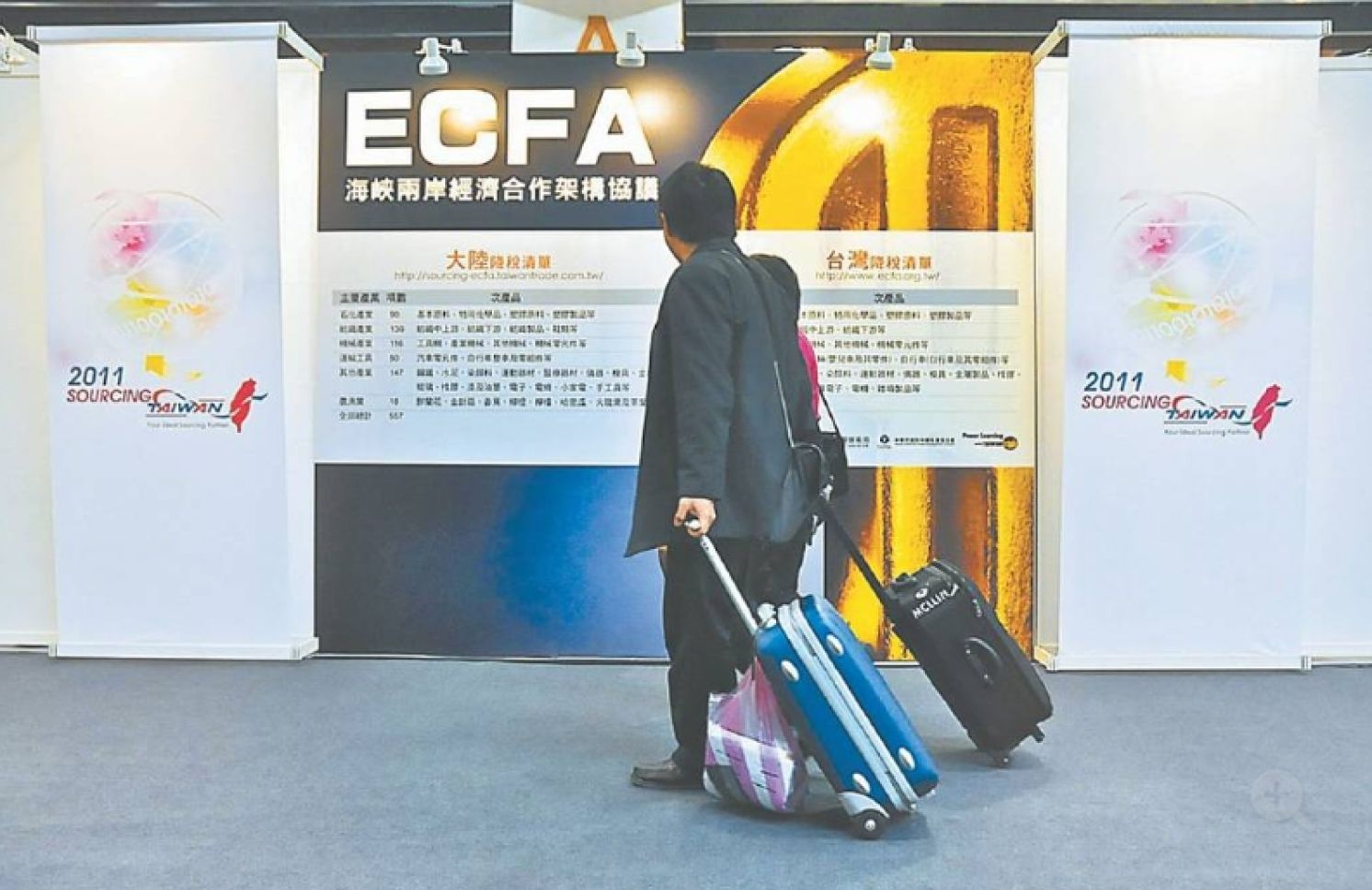
Taiwan Ought to Prepare for ECFA Termination and Disappearance of Traditional Industries
By Tu Jenn-hwa
China Times, June 1, 2024
Taiwan must prepare for the probable termination of the cross-strait Economic Cooperation Framework Agreement (ECFA) and the disappearance of traditional industries. On May 31, mainland China announced that starting from June 15, it will resume tariff imposition on 134 commodities imported from Taiwan that are listed on the early harvest list of ECFA, signed between the two sides in 2010. These items include lubricants, base oils, racing bicycles, and certain categories of textiles. This is the second batch of items China has announced, following the resumption of tariffs on 12 items including propylene at the end of last year. In total, tariffs have been reinstated on 146 commodities, accounting for nearly 30 percent of the products on ECFA's early harvest list. It is unarguably expected that the mainland will likely continue to impose tariffs on other products on the list in the future.
The Taiwan Affairs Office (TAO) of mainland China’s State Council asserted that the ECFA was signed based on the political foundation of the "1992 Consensus." Since Taiwan insists on pursuing a path of independence, the mainland has no choice but to further suspend the tax-free treatment of products listed under ECFA. Taiwan's Mainland Affairs Council (MAC), on the other hand, believes that ECFA essentially is a trade agreement signed within the framework of the World Trade Organization (WTO) and does not have the "1992 Consensus" or the "One China” principle as a premise. Hence, the council calls on China to stop using economic and trade pressure on Taiwan.
In reality, as long as the people in Taiwan continue to support the Democratic Progressive Party (DPP) in governance and the administration of President Lai Ching-te aims to move towards independence, Taiwan must be psychologically prepared to pay the enormous price of economic development in the near future. In the past, despite China's continuous political and military intimidation, it has not genuinely begun economic coercion on Taiwan. Whether it was suspending the import of several agricultural products or canceling some items on the ECFA early harvest list recently, these actions were merely symbolic reminders to the DPP administration and the people of Taiwan.
This time, the suspension of early harvest list products will affect Taiwan’s traditional industries severely, such as petrochemicals, textiles, and machinery, since most of these products heavily rely on the mainland Chinese market. Without the benefit of tax exemptions, it will be difficult for them to compete with companies from the "China-ASEAN Free Trade Area" or Regional Comprehensive Economic Partnership (RCEP) member countries, including Southeast Asian nations, Japan, and South Korea. In the future, the probability is extremely high for Taiwan companies to directly close their factories in Taiwan and relocate to the aforementioned countries that have free trade agreements with the mainland.
In other words, Taiwan must be prepared for the accelerated loss of traditional industries in the future. Since traditional industries are relatively labor-intensive sectors, their decline will not only raise unemployment rates but also further imbalance Taiwan's industrial structure, making it increasingly dependent on the high-tech electronics industry, particularly semiconductors. In addition, Taiwan will face greater industrial volatility and further deterioration in income distribution among workers and other sectors, potentially leading to worsening social issues such as public security and others.
Now that the MAC mentioned that ECFA was signed according to WTO doctrines, let's examine whether Taiwan adheres to the "non-discrimination principle," the most important basic principle of the WTO. This principle stipulates that a member's trade policies must be applied fairly to all WTO members. Taiwan has not followed this principle with respect to mainland China as its policy has maintained strict control on mainland Chinese products. Thousands of Chinese products cannot be freely imported into Taiwan like those from other countries, including apples, which Taiwan produces in very limited quantities and heavily relies on imports. Given this, how can the Lai administration criticize Beijing for "not following WTO principles" by removing some items from the ECFA early harvest list?
It is anticipated that as the Lai administration continues on the path towards independence, Beijing will soon terminate ECFA, and Taiwan's traditional industries will disappear in no time. Even though Taiwan has a strong high-tech industry supporting its economy, the fallout from the complete decline of traditional industries may be more than the Lai administration can handle.
The author is a distinguished professor at Huafan University and director of the Great China Money & Finance Association.
From: https://www.chinatimes.com/newspapers/20240601000444-260109?chdtv